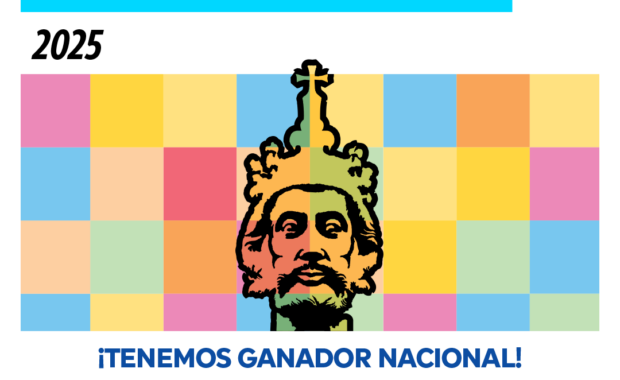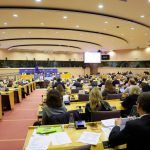Students from the Andrés de Vandelvira Secondary School in Albacete walked the Camino de Santiago alongside students from Germany, Bulgaria, Romania, and Portugal to promote the European elections.
The Camino Europa 2024 project, promoted by the Andrés de Vandelvira Secondary School in Albacete, is the winner of the 2025 Charlemagne Youth Prize in Spain. The objective of this initiative was to promote citizen participation in the 2024 European elections, and to this end, it brought together nearly 100 secondary school students from Germany, Bulgaria, Romania, and Portugal, as well as the Andrés de Vandelvira students themselves, on the Camino de Santiago pilgrimage. Through its various stops, they organized events with the residents and young people of the towns to inform and raise awareness about the importance of the elections and the work of the European Parliament.
Camino Europa 2024 was born with the idea of uniting European students from the different schools associated with Andrés de Vandelvira through Erasmus+, but it soon evolved and became an opportunity to promote participation in the European elections held on June 9. With the collaboration of the Albacete City Council, the Europe Direct office in Albacete and the Office of the European Parliament in Spain , Camino Europa 2024 grew with schools from four different countries in the European Union: Germany, Bulgaria, Romania and Portugal.
During the pilgrimage along the Camino de Santiago, the young people not only participated in games and activities, but also raised awareness among local residents about the importance of voting. Local schools also participated in the project, such as students from a school in Sarria (Lugo), and upon arrival in Santiago de Compostela, where the young people met with members of the European Parliament.
Following the experience, the students who participated in Camino Europa promoted elections in their hometowns, and in recognition of the success of their initiative, the Andrés de Vandelvira students were invited to a Euroscola session in Strasbourg.
The Spanish jury for the Charlemagne Prize consisted of MEPs Borja Giménez Larraz (EPP) and Elena Sancho (S&D) , as well as Mireya Diouri , project manager for the youth association Talent for the Future, representing civil society. A total of 52 applications were received, of which 15 met the rules and were reviewed.
Once the national winners have been selected, the European jury—composed of the President of the European Parliament, MEPs, representatives of the International Charlemagne Prize Foundation in Aachen, and representatives of the youth sector—will select the three winning European projects, which will be announced on May 27 at a ceremony in Aachen, Germany.
Context
The Charlemagne Youth Prize has been awarded annually since 2008 to youth-led projects that promote European and international understanding, with the aim of highlighting the daily work of young people across Europe to strengthen democracy.
The first prize is worth 7,500 euros; the second, 5,000 euros; and the third, 2,500 euros.
To be eligible, projects must be submitted by a person residing in one of the 27 Member States and aged between 16 and 30 at the time of application. Furthermore, the project must have yielded results in areas such as promoting cooperation and understanding both across Europe and internationally, fostering a shared sense of European identity and integration, encouraging other young Europeans to participate in our democracy, or providing practical examples of Europeans living together in a community.
More information European Parliament.







Leave a Reply